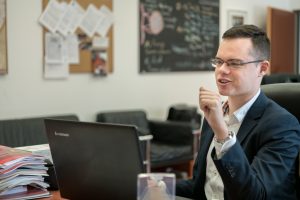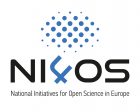The first Hungarian Open Science Forum took place online in 2021 organized by KIFÜ and DE, to aid in the implementation of Open Science practices in everyday research. This year, the 6th Hungarian Open Science Forum was delivered on January 27th – also online –, to share news regarding EOSC, and open research to those, who were interested. Usually these forums are in Hungarian, but occasionally international speakers are invited to share insight on EOSC an6h6d collaborative research practices.
EOSC lifts up projects

The 6th Hungarian Open Science Forum welcomed Dr. Zoe Cournia, investigator of Biomedical Research Foundation at Academy of Athens to share her experiences using EOSC services, through examples from life sciences. She spoke about the Ingredio app, which helps users to find out more about the ingredients of some groceries, only by scanning the packaging. EOSC was a great resource in the development of the application, considering it uses open datasets. In her presentation, she highlighted the contribution of the NI4OS-Europe project in making Ingredio a huge success. Dr. Cournia stated that early career researchers are essential in making Open Science a reality and a new normal in research.
RDM practices in life sciences

The second presentation of the event was delivered by Dr. Tamás Ferenci, associate professor of Óbuda University, who shared insight on research data management practices on the field of life sciences. He talked subjectively about challenges and good practices in regards of RDM. His presentation was led through three pillars of research data management: gathering data, analysis, and dissemination, for a straightforward point of view. His presentation included the topic of research assessment as well, which will need more attention in the foreseeable future.
Workshop series in Hungarian Higher Education Institutions
Dr. Ákos Lencsés, from KIFÜ talked about a lecture-series the agency delivered in Hungarian Higher Education Institutions, in the fall semester of 2022. The main topic of the lectures were Open Science, but it covered open access aspects, scientific publishing, research data management and benefits of EOSC. KIFÜ held 22 lectures at 8 different locations, reaching more than 370 students.
Finally, János Mohácsi, also from KIFÜ covered EOSC news in his presentation, summarizing the results from the EOSC General Assembly last November. He also provided a future outlook for 2023, in regards of important events and conferences.
The online event counted 77 participants from Hungarian research communities.
